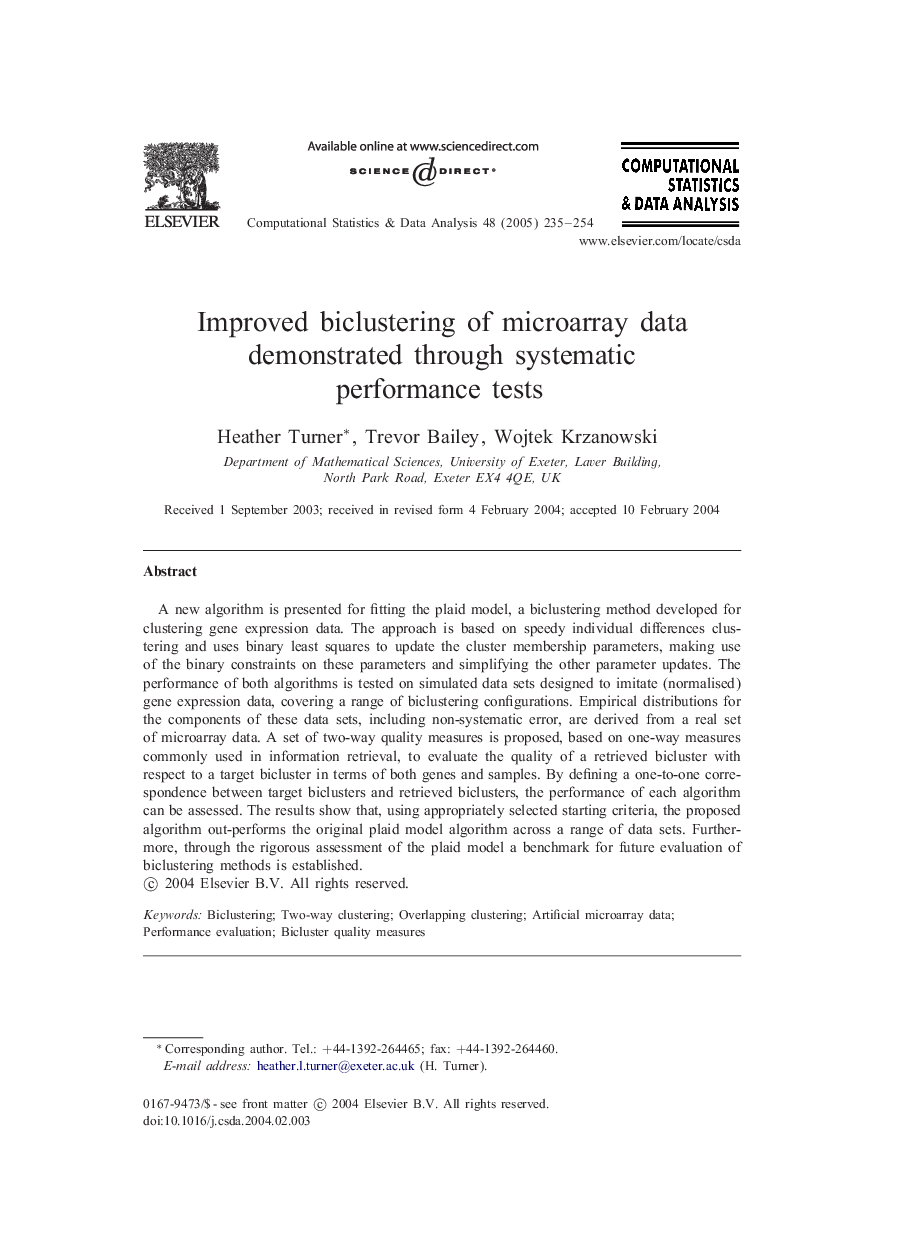| Article ID | Journal | Published Year | Pages | File Type |
|---|---|---|---|---|
| 10328167 | Computational Statistics & Data Analysis | 2005 | 20 Pages |
Abstract
A new algorithm is presented for fitting the plaid model, a biclustering method developed for clustering gene expression data. The approach is based on speedy individual differences clustering and uses binary least squares to update the cluster membership parameters, making use of the binary constraints on these parameters and simplifying the other parameter updates. The performance of both algorithms is tested on simulated data sets designed to imitate (normalised) gene expression data, covering a range of biclustering configurations. Empirical distributions for the components of these data sets, including non-systematic error, are derived from a real set of microarray data. A set of two-way quality measures is proposed, based on one-way measures commonly used in information retrieval, to evaluate the quality of a retrieved bicluster with respect to a target bicluster in terms of both genes and samples. By defining a one-to-one correspondence between target biclusters and retrieved biclusters, the performance of each algorithm can be assessed. The results show that, using appropriately selected starting criteria, the proposed algorithm out-performs the original plaid model algorithm across a range of data sets. Furthermore, through the rigorous assessment of the plaid model a benchmark for future evaluation of biclustering methods is established.
Related Topics
Physical Sciences and Engineering
Computer Science
Computational Theory and Mathematics
Authors
Heather Turner, Trevor Bailey, Wojtek Krzanowski,
